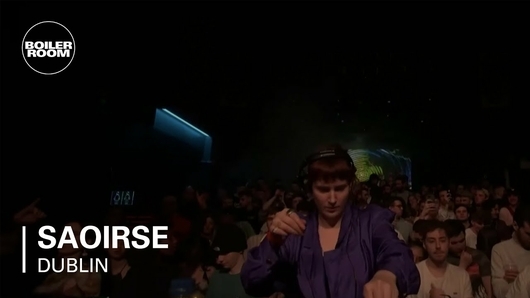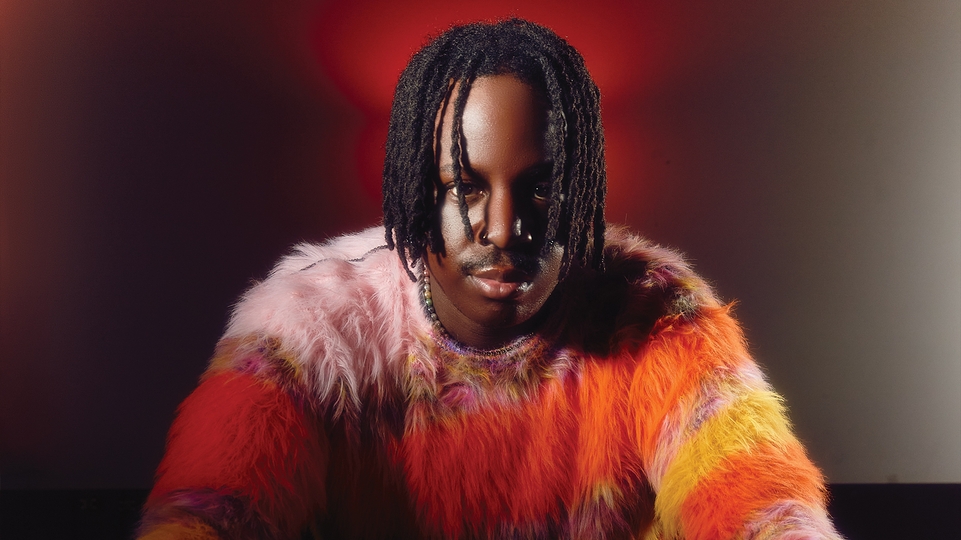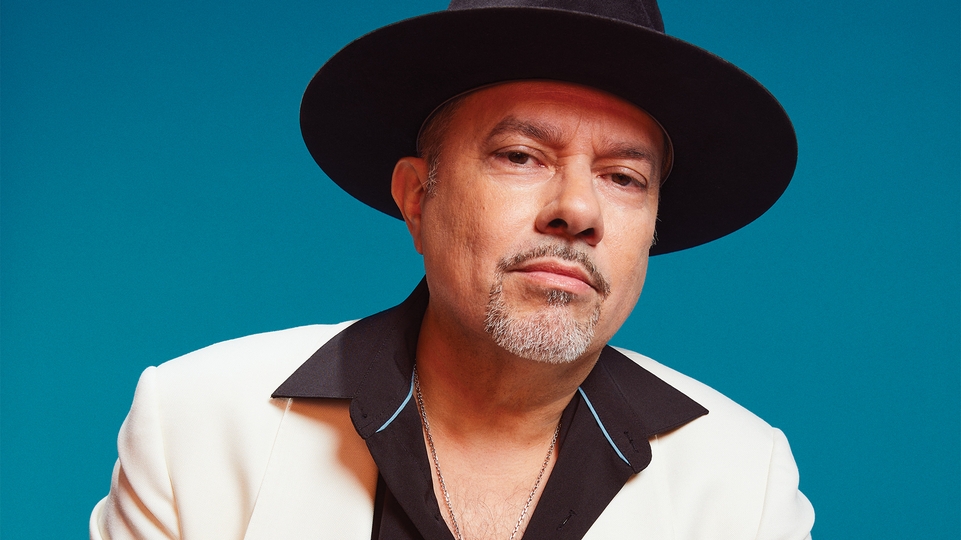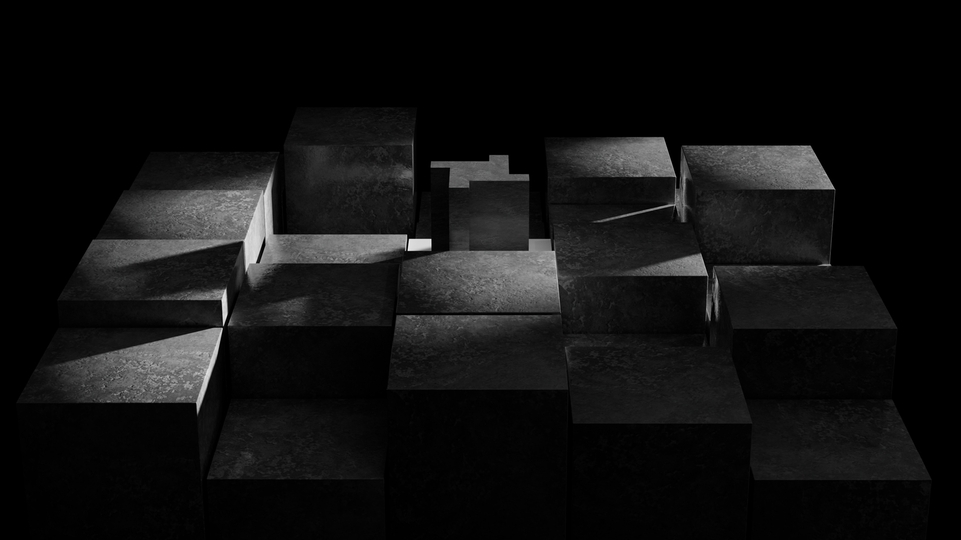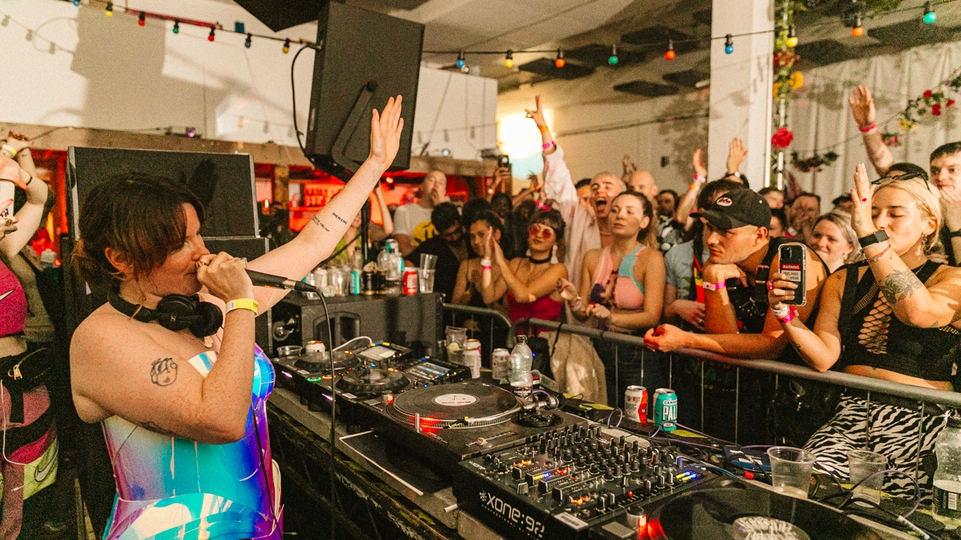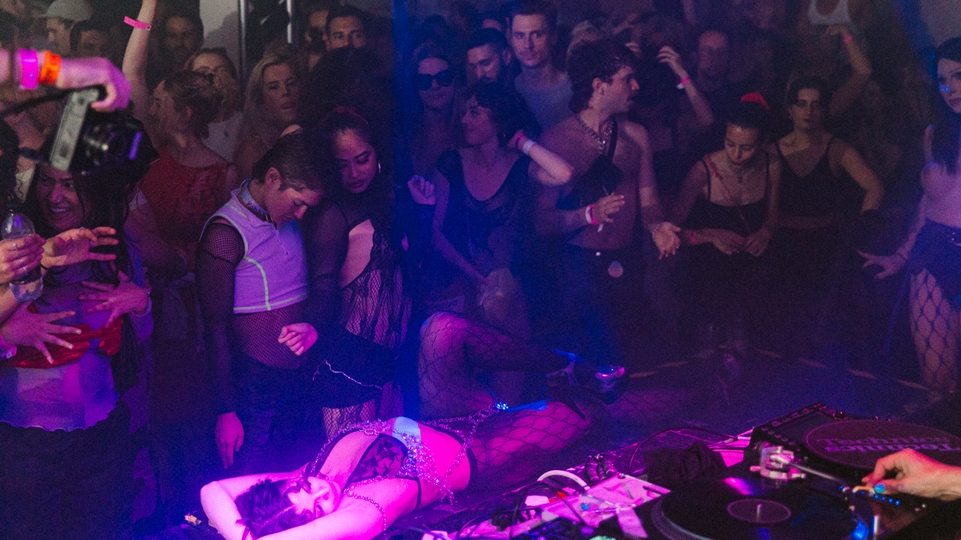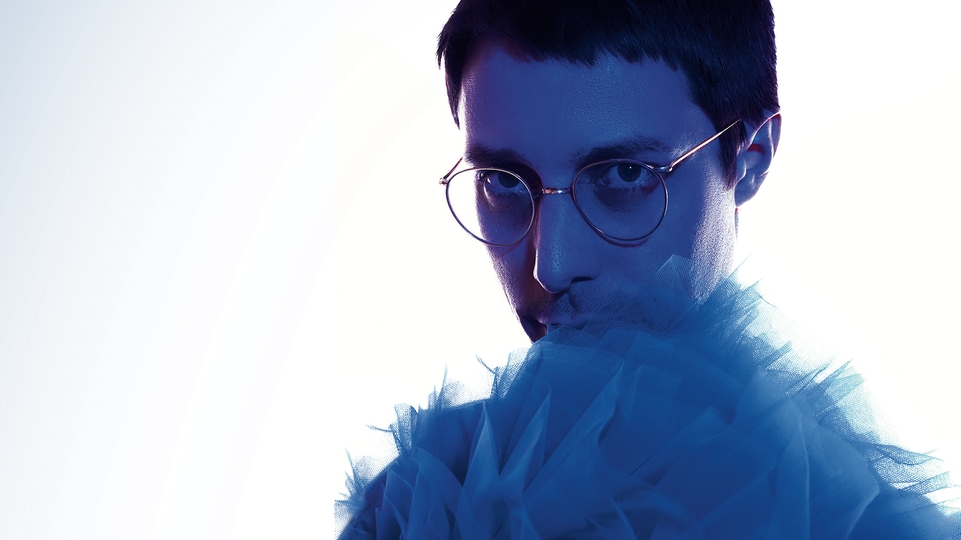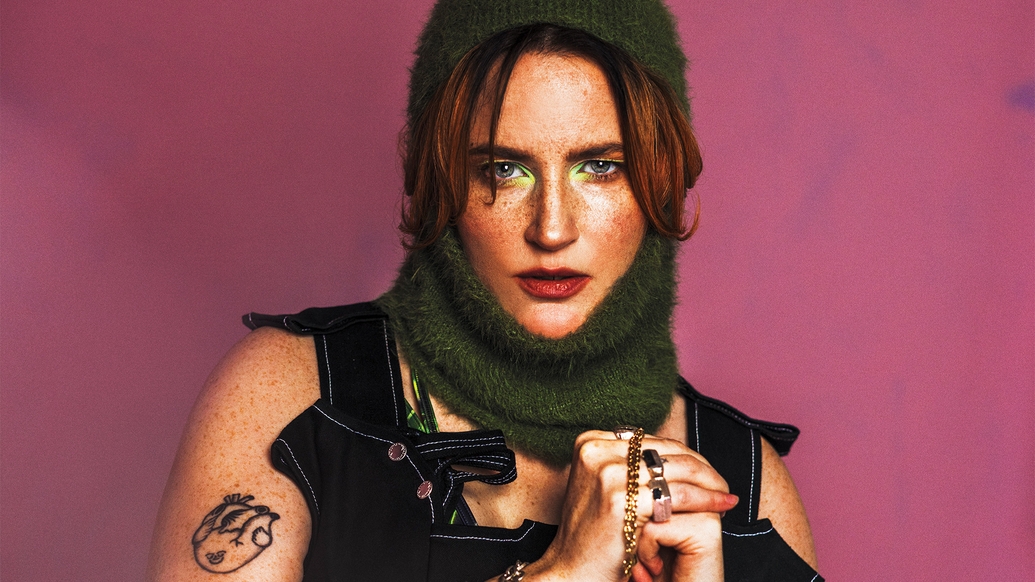
Saoirse: body mover
A lifelong raver, Saoirse has grown into a dance music multi-hyphenate: a revered DJ, flourishing producer, label boss, and a unifier of LGBTQ+ collectives through her Body Movements festival. She speaks to Anna Cafolla about her long journey of musical and self-discovery, the challenges she's faced along the way, and her vision for queer art
It’s 2am on Boxing Day in Belfast’s Ulster Sports Club. Bouncers are funnelling the crowd out so quickly that several iPhones are still being held aloft, blue screens flickering with spinning Shazam wheels. Some stragglers, adrenaline pumping and taking a more analogue approach, lunge for track IDs from Saoirse.
Like her native Dublin, this is a city constricted by some of the most archaic club licensing laws in Europe. Still, across a compact two hours, Saoirse’s set is defiant, undulating with a honed electronic arithmetic that she’s crafted from 20 years of collecting records, playing free parties, international ragers, pirate and prestige radio, and cutting her teeth across the subcultures of Dublin, London, and Ibiza; Barcelona, Berlin, and Bristol. The night’s rowdy festive ravers are delighted by her buzzy selection of skittering breakbeats, satiny R&B edits, nu-skool garage, and wobbly acid.
Saoirse embodies her name — the gaelic word for ‘freedom’ — on the decks: fierce and purposeful, yet free-flowing and playful. She moves with sensuality, laughing often with the crowd’s ecstatic moments as her set staccatos genre and tempo. A Missy Elliott edit draws a rebel yell, and dexterous mixing and crossfading gear-shifts lift fists into the air and pound feet into the hardwood dancefloor.
We saunter towards what we think is a green room, but it’s just a stairwell, sticky and baltic. A very Irish clubbing denouement. "There's so much beauty and possibility in Ireland’s scenes,” Saoirse says with a sigh, “but governments consider youth culture and electronic music a nuisance."
Saoirse Ryan — DJ, producer, trUst label boss and Body Movements festival co-director — has been on one deck or another since the age of 14, acquiring her first set from a mate in exchange for a lump of hash. “I'm definitely telling you some things that my ma will fucking have me for,” she says with a wicked, raspy laugh. “You know, I need to just be honest! I had no money growing up, and there was no way in hell I could afford turntables. It was so out of my reach.” Now within grasp is the forthcoming winter edition of her sell-out festival, a night curating Fabric with her friend Shanti Celeste, and her label expansion.
“My life now is a million miles away from when I was growing up,” she tells us later, when we meet to chat properly in her North London flat. “Being able to earn money doing something I really love? Jesus Christ. I don't know who I have to thank up there.”
Her home is colourful and curated, with jewel-toned walls and furniture, impressionist prints and photographer Nadia Lee Cohen’s hyper-surreal photography book Women on the table. Resident Advisor’s Sacred Spaces sits beside it, a book celebrating the hedonistic history of club culture. Saoirse’s contribution, We Do Say A Lot, is a poetic and personal love letter exploring the wordless dancefloor language, the inarticulable emotional rhythms of the club: “What was once second nature, we’ve come so far, is now a first”.
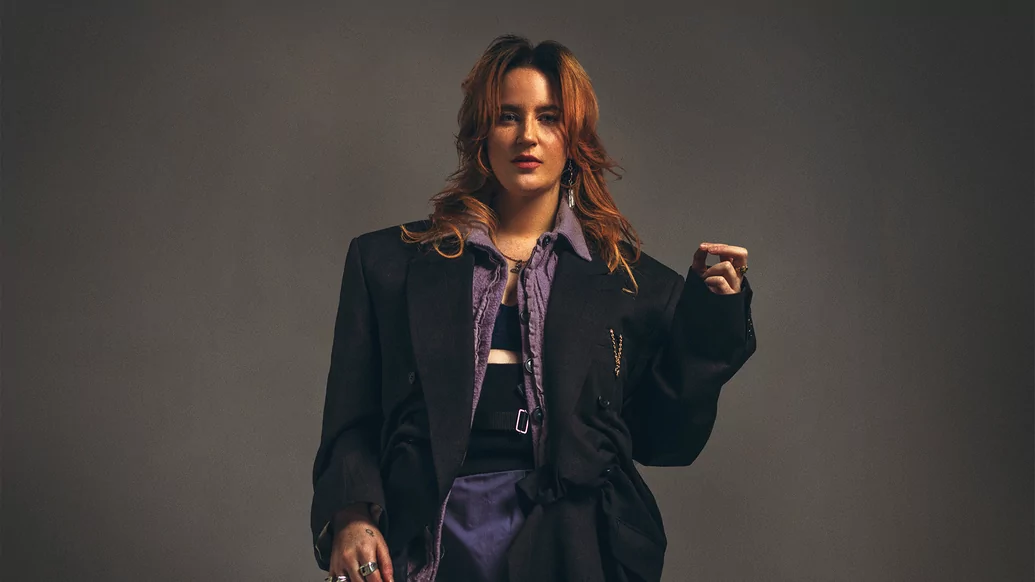
Electronic music is more than just instinct — it is life’s very architecture, an appendage. “It's as much a part of me as my skin,” she says. “It was just me and my ma, growing up. Music has always been with me, with us.” Her mother played in trad bands every Sunday in the pub, where at six years old Saoirse would accompany her on the spoons, later moving onto drums and, briefly, the guitar. Her mother was also involved in Ireland’s free party scene, where a young Saoirse was exposed to techno and drum & bass. It was also where she learned to drive, becoming a chauffeur for the older ravers. Already, a tiny facilitator of a scene — prophetic. Their Dublin house was soundtracked by Orbital, Moby, and Air, as well as Nick Cave, The Specials, and PJ Harvey. Leftfield’s ‘Leftism’ was one of her first CDs.
“The earliest memory I have of really liking electronic music is when I was about six,” Saoirse remembers. “I had a childminder I'd go to after school when my mam was working, and she had a moody teenage son who’d blast music. I'd sneak up to his door and listen. I was so drawn to what he was playing.”
One day, he caught her earwigging, and after a confrontation he handed over Saoirse’s siren call, The Prodigy’s 1992 ‘Experience’ album. “That was monumental,” she says. “I listened to it relentlessly, to and from school. I knew every tiny detail.” In the years following, she entered and exited a “band phase” pretty quickly, came by the bifter-bartered decks, and discovered pirate radio.
“I got more and more nerdy,” she recalls. “I’d spend all my money on DJ Mags and Mixmags I collected for 10 years. Most of them are in my nana's attic.” She saved up for and bought two vinyl from Dublin’s Tower Records: a 150bpm hard house Paul Glazby and a Nelly record. “I tried to mix them for so long. I was so frustrated because I couldn't understand why they wouldn't work. Tempo? I didn't have a clue!” She was soon switched onto the sounds that dominated Ireland’s alternative enclaves: hard house and trance.
“You were drinking naggins of vodka and going out to Planetlove, or travelling up North to Lush!,” she says. “It's insane how much it thrived even when people were only in the clubs for three or four hours, then you’d seek it out elsewhere. You would get directions and you'd just have to get out of the car and listen for the beat — we were so attracted to the lawlessness.” Through her teens, she frequented mega raves with Carl Cox, Jeff Mills, and Pete Tong. Any money she made from paper rounds or shifts at local chippers was ploughed into records.
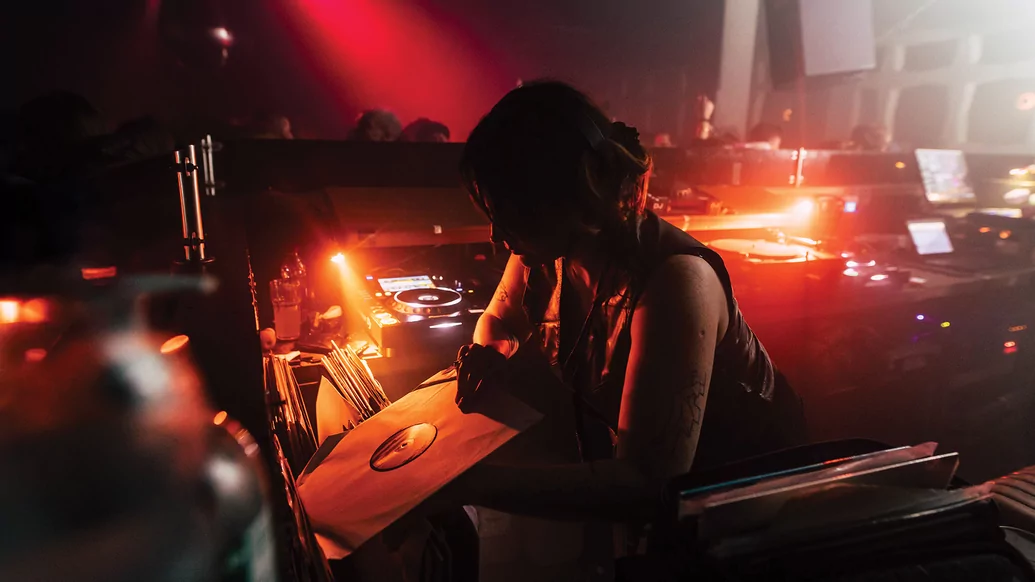
This is a fearlessness and open-hearted curiosity that persists today, in Saoirse’s dedicated crate digging, her nimble, club-driven sounds, and intuitive performances that make her one of the most agile, respected DJs in the game, as well as a beloved underground figurehead. Whether that’s serrating the dancefloor of London club FOLD, or sending shudders of pleasure through the voguing crowds of Barcelona’s LGBTQ+ night Maricas, where she’s a resident. Festivals are what she calls her “natural habitat”, the summer of 2022 being particularly vibrant, with killer sets at Houghton, Love International, and Glastonbury. It was also seminal for more than a few outings of the wondrous four-way B2Bs she plays with close friends Moxie, Shanti Celeste, and Peach (known collectively as SASS).
“Playing with her always feels like more fun than anything — a moment for us to catch up, laugh, tell each other a story between tunes, and share new music we've been playing in front of a crowd,” Serena Pasion, aka Peach, tells us. “These moments of vulnerability and realness are something I value between us and always will.”
SASS’ four-hour Glastonbury set extended into six, propelling a hollow-eyed, elastic-bodied crowd of ravers into revelry with speed garage, bolshy breakbeat, and the song of the summer, Eliza Rose’s ‘B.O.T.A.’. As the tepid sun blanched the legendary Block9 area and (we swear) a pale rainbow broke through, goosebumps dotted swaying limbs for an exquisite swansong, Kings Of Tomorrow’s ‘Finally’.
“Saoirse is an old friend, and the real deal,” says Dave Harvey, co-founder of Croatia’s Love International. “She was coming out before she was playing here, and had always supported the festival from its inception.”
If your summer was more TikTok scrolling than Tisno, the algorithm might have brought you the riotous clips of one of Saoirse’s sets at the festival — another high-energy four-way B2B ended with crowd surfing. “That SASS session will definitely go down in history. It took everyone by surprise, including the security and bar staff — legendary stuff,” says Harvey. “Watching her ascendancy over the last few years has been ace.”
“I do my due diligence for every single show,” Saoirse affirms. “I think about who's playing before and after me a lot. I don't really have rules, but I do a lot of prep — I have a P Bar folder I've been adding to for three years. I love to check out a room before and work out the sound dynamics and vibe. Does it need to be light and ethereal? Deep and dubby?”
Saoirse is a DJ who thrives off of her crowds. “I'm buzzing off them, they're buzzing off me. I love that intimacy.” She’s cultivated a loyal legion of dancers — her TrUst showcases garner majority women patrons. Her personal style reflects the mood — a peachy orange latex Moschino dress for running the show at Body Movements, a diaphanous black tulle dress for Berghain, a suite of chic suits and bright corsets that offset her copper hair.
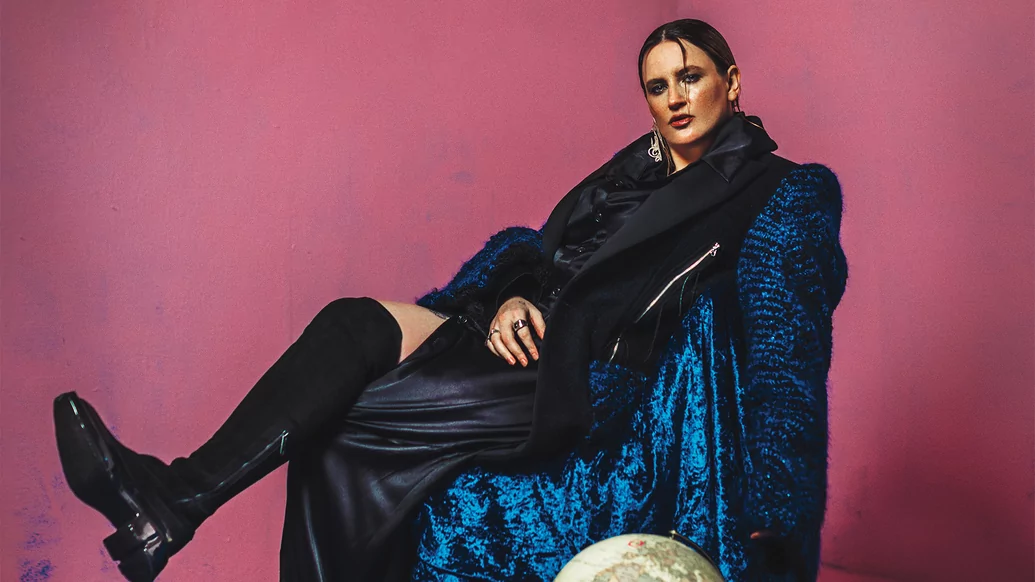
“To pursue things properly, I had to get out of [Ireland]. I didn't want to wait for someone to give me approval. It’s only in the last few years I've had promoters interested in booking me as a headliner. I had to get globally known before I was able to get anywhere in my own country.”
Saoirse’s 20-year industry tenure has been built upon a series of inceptions that have made her the formidable force she is today. She booked her first gig at 17, in Dublin’s “godawful” Parnell Mooney pub. She stood on a milk crate to reach the decks and pummelled a basement of 30 mates with hard house. “After that I started getting quite a few gigs, but I wasn’t very good,” she says with a laugh. “I started playing with bigger DJs, and I couldn't even mix cement!”
She had belt-drive turntables but had to “completely start again” after discovering direct-drive Technics 1210s were the club norm. “I saved up and bought a pair, but I just couldn’t get the hang of it. It was depressing to go back to the beginning. I quit for about six months.”
When ambition overcame exasperation, Saoirse pursued trance. Before she even felt ready, she was on line-ups with household names like Tiësto and Lisa Lashes. “Trance back then was a bit of a dirty word, but we trance people were proper geeks,” she says. “I'd know names, years, distributors, how many were pressed. I'd be on forums all night.”
Riding the arpeggiating trance wave meant beating back hard against currents of snobbery and misogyny. “When I tried to get into the house world, no one would even look at me,” she says, rolling her eyes. “There was no room for redemption!” House and techno intrigued her, but she was stonewalled — she felt it intensely on internet forum behemoth Dance Music Ireland. “Ireland is such a small place, and it felt like everyone was slagging me off. Misogyny was everywhere. There weren't that many female DJs, and you’d be up against the ‘girls can’t mix’ crowd.”
Where better to have a beatific dance music epiphany, than in the Balearics? More specifically, on the open terrace of Ibiza’s Space, aged 17. “I don’t know what rock I was under before. I’d slagged people who loved house! There, I finally got it.” Getting it meant going all in. Saoirse spent two and a half seasons in Ibiza from 2006 to 2008. “I was going out religiously to DC-10 and Amnesia. My poor brain, my poor body!” Returning home, a job in Dublin’s Abbey Discs record store enveloped her in progressive and electro, house and minimal. “That’s just had me solidly for the last 15 years,” Saoirse says, “with a little funky house moment in there.”
It was Al Keegan who gave Saoirse her first house-focused gig in Dublin, and continued to book her as she tried to carve an authoritative space. Keegan, who passed away in 2021, was a legendary local DJ and promoter, who ran some of Dublin’s most boisterous nights: Acii Disco, Rubberband, and Mixed Salad. Saoirse dedicated her debut Essential Mix to him. “I think about Al a lot when I reach my ambitions,” she shares. “I really incorporate his thinking into how I work with local scenes.”
Back then, she was agitating at her own local scenes’ edges. Though she was playing a lot of events on Dublin’s frenetic club circuit, it was mostly as a support act. “Ireland has a real history of producing some amazing music talent, but many of them had to go elsewhere to be recognised,” she says, citing Sunil Sharpe as an example. “He's one of the best record mixologists in the world. It was only when he started playing gigs at Berghain and Bassiani that his own country even took notice.”
Saoirse was supporting acts like Perc and Satoshi Tomiie, while minimal and electroclash reigned supreme and big parties were headlined by Soulwax, John Digweed, and Sasha. The smaller nights leaned into the minimal sounds. "Druggy music," Saoirse jokes. At Al Keegan’s Mixed Salad night, she discovered dubstep and other tentacles of techno and house. Past 2am, she'd be straight in a car to after-parties and illegal beach raves.
But it wasn’t enough. Saoirse represents a disillusioned generation swept up by Ireland’s “brain drain”, who abscond elsewhere for opportunity and pleasure. “The hangover of Catholicism holds it back.” She pauses and thinks carefully. It's a dichotomy young Irish people grapple with continuously — the paradoxical, fierce love of home, and the frustrations of the ever-narrowing grounds people dance upon. “To pursue things properly, I had to get out of there,” she says candidly. “I didn't want to wait for someone to give me approval. It’s only in the last few years I've had promoters interested in booking me as a headliner. I had to get globally known before I was able to get anywhere in my own country. I really enjoy playing there, and it goes off. It's just about liberating people.”
This year has already seen moves towards the development of a robust night-time economy in Ireland — 6am closing times should come into action by March if the Irish government prioritises implementing the policy. Yet despite the growing number of queer collectives, there remains a pertinent lack of LGBTQ+ spaces and only two gay clubs in the capital. "Looking at Dublin now, there's more queer events doing cool things. It's an extremely white place, but it's more diverse than when I left 14 years ago," she says.
"It began to feel stale for me," she continues. "Especially as a gay woman. I was very much in the closet. I had no friends that were queer. When I went to London by myself, I was able to express myself among new cultures, vibes, and sexualities.”
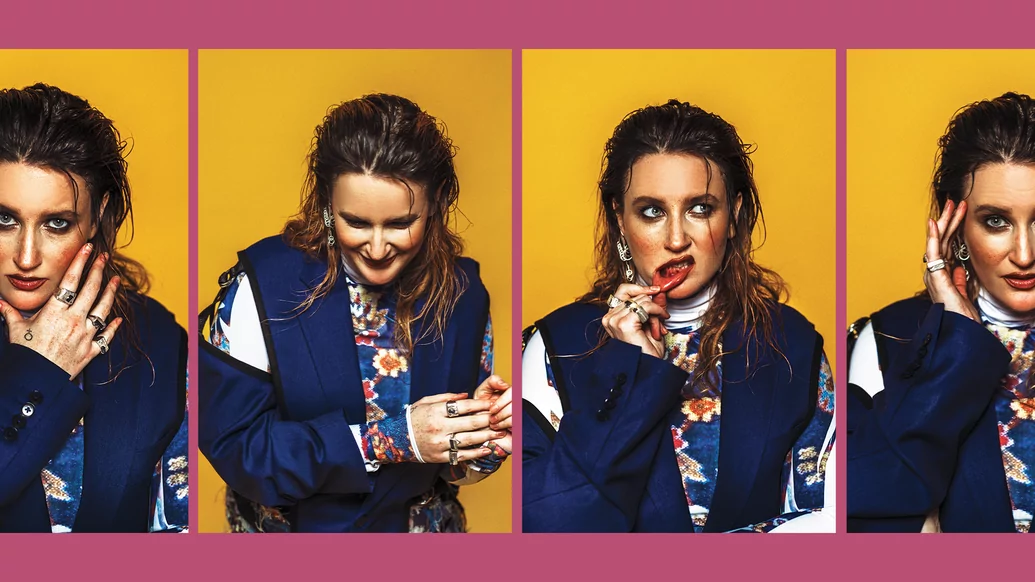
“That's a huge part of it: caring about the music and being a part of a scene. You want to play that party? Get your foot in the door by getting on the dancefloor.”
The pull of international club circuits and their approach to local artists was hypnotic: queer, serious raver, and weirdo-friendly, but also forward-thinking in championing grassroots talent. Trips to London and Berlin opened her eyes to progressive club ecosystems. “They really get behind the residents. Fabric has a history of doing that, and Phonox did it in a new way. I just never really saw that happening in Ireland.” A few years later, these two vital London clubs would champion Saoirse: as a Phonox resident last year, and as a curator of a forthcoming Fabric night with Shanti Celeste.
It was at Fabric’s 2008 birthday celebration that Saoirse had her next revelation. “Fabric has been a huge influence on my life,” says Saoirse, grinning. “Room One has dictated so much.” It was, specifically, 10am on the dancefloor with Ricardo Villalobos playing that it hit. Six months later, she moved over.
London felt like a clean slate, but that didn’t make it any less of a struggle and hustle. Saoirse worked two jobs to get by. Through one, she met Studio 338 creative director and Art After Dark promoter Dan Perrin. He gave Saoirse her first London show. “I was going to all the parties, getting to know promoters,” she says. “That's a huge part of it: caring about the music and being a part of a scene. You want to play that party? Get your foot in the door by getting on the dancefloor.” Weekends were stretched taut in Fabric and in the not yet new-build-heavy wasteland of Hackney Wick.
Quickly, she was shedding small town mentalities, while exploring her identity as a gay woman. "It took me a while to come out when I got to London. I'd go to gay bars, but it was only five or six years ago I started to go to more queer events, discovering them and playing them: Chapter 10, Fèmmme Fraîche, Adonis, and lesbian nights that don't exist anymore.”
Berlin is where she had her queer evangelical moment, with a first trip to Berghain 12 years ago. “It was somewhere I thought I could be in my own sexuality and not feel ashamed. I grew up in a super open household, but the urge I had to stay in the closet felt more part of an Irish condition.”
All the while, London had her heart. “I just knew that what I was looking for as a queer woman, as someone who had aspirations musically, it had everything I was enamoured with.” Her next job, as Head of Ticket Sales for Resident Advisor, expanded her insight. “I had a helicopter perspective of the scene worldwide,” she says. “I've lived and breathed it for a long time. While there’s difference, there’s a universal language. I've also got to see how much music means to people, in different ways. You go to Georgia or Palestine, places scarred by war, where electronic music is an escape.” Chugging away at DJing, she got the dancefloor of respected nights like Percolate and Motion heaving, and has enraptured crowds across Asia, Europe, and the States.
Cultivating community remains a vital tenet of Saoirse’s life and work. Peach describes first meeting her on St. Patrick’s Day in 2017 through a mutual friend. “She told me there would be a pony coming to the pub dressed up,” she says. “We waited and waited, and the pony never showed up, but she swears I just missed it. She loves to tell me things like this, and I somehow always believe her. I think I've always trusted her.
“Some of our fondest memories revolve around being on dancefloors, of mornings together laughing and sharing stories, and playing our unreleased tunes for each other. The first time I ever saw her play I remember being obsessed with her precision mixing records, and felt inspired to play more myself. She is still one of the DJs I look up to the most and feel a strong connection for what and how she plays.
“Saoirse has been there for me throughout my own self-discovery of my sexuality and has always been constantly supportive,” Peach says. “It’s with her support that I feel comfortable being more open about myself.”
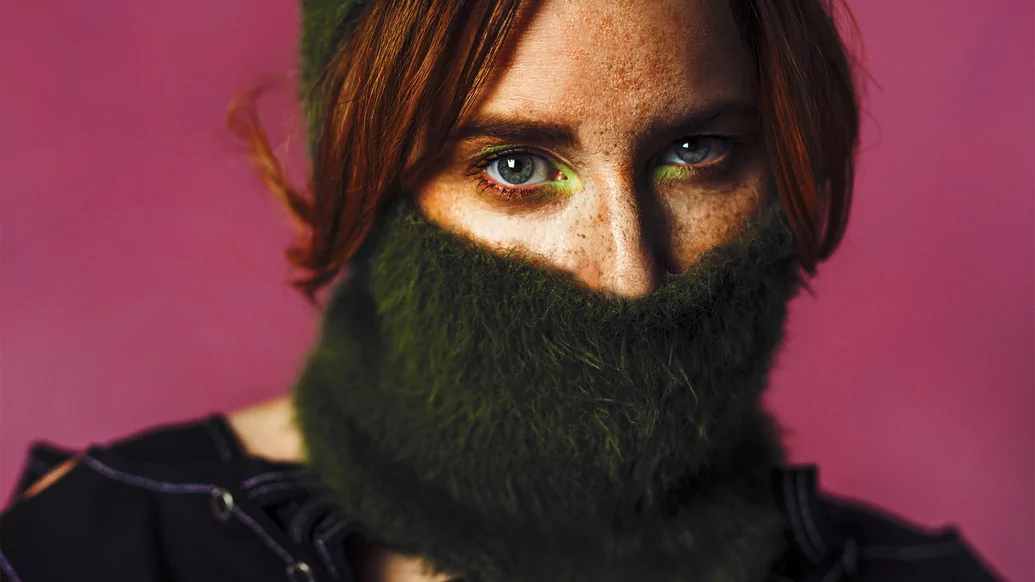
"I believe that queerness should have the opportunities to do the bigger spaces that have the amazing production and sound. We also want to expand the spectrum of what people think queer electronic music is and can be.”
Alongside co-founder Clayton Wright, they launched Body Movements, the UK’s first queer and trans electronic music festival. Wright and Saoirse shared decades of experience, and both touted their love of the scene over business interest, neither taking a pay cut for the first few years.
“Queer parties are the best places to be playing,” Saoirse says astutely. “What I did notice was that queer parties can be quite constrained to the dark corners. That makes it all the more fun, and it can be purposeful. But I believe that queerness should have the opportunities to do the bigger spaces that have the amazing production and sound. We also want to expand the spectrum of what people think queer electronic music is and can be.”
After two reschedules and a pandemic that decimated the clubbing landscape, Body Movements stormed Hackney Wick with over 130 artists, many of whom had never played a festival before. 4,000 people attended the hedonistic reunifying of the queer clubbing community. “My eyes welled up when we got the ‘doors open’ signal on the radio,” she says. “It felt to me like people have been waiting for something like this.”
Body Movements' sold-out winter edition wafted through the cavernous South-East London club Printworks this month for an 11-hour marathon of music, featuring collectives and imprints like mainstays Adonis, Chapter 10 and Little Gay Brother, as well as Big Dyke Energy, Riposte, and Hungama. “Saoirse programs with integrity, heart, and soul, and that means you need to be tapped into the community around you,” says Clayton Wright. “She realises that queer clubbing is not just about escapism and having a lovely time – it's political. She wants to use her platform for uplifting the queer music scene.”
The duo have hopes to launch workshops, a programme of talks, and a year-long mentoring scheme for emerging queer artists who will play the festival. “We want to set the standard in queer electronic music worldwide. It excites me to bring what we do into a space [like Printworks] that is predominantly run by straight, white parties,” says Saoirse. “We'll be able to step up production, sound, visual, and live aspects that we're limited with in Hackney Wick.”
Dance music is built on the concept of utopia, but remains undeniably tethered to the realities of soaring living costs, conservatism and the climate crisis. “There's always going to be a place for creativity and art, but the model which we live in today... I'm just enjoying it while it lasts.” She says Body Movements was rejected for Arts Council funding because electronic music did not align with the idea of ‘art’ envisioned for funding. The overcorporatising of dance music — from high ticket prices to exclusivity contracts and the monopolising of clubbing landscapes — remains a concern.
“Our world, our scene, has been hugely commodified,” says Saoirse. Is toeing the line of underground resistance and economic survival possible? “I struggle with how I move within the world of DJing and money,” Saoirse admits. “I have a balance of doing small, fulfilling shows with independent promoters, while also having the bread-and-butter shows that pay well, where you might not have that same crowd engagement or satisfaction.”
It’s sticky, she agrees, but Body Movements is on the frontline, determined to stay reverent to a culture and community rooted in the underground, while expanding for radical change. “To me, art — queer art — needs to be as visible as possible,” Saoirse affirms. “We need to take up space. Growth comes with obstacles of commerciality. We are going to keep transparent. If it costs more, it's because we'll be better.”
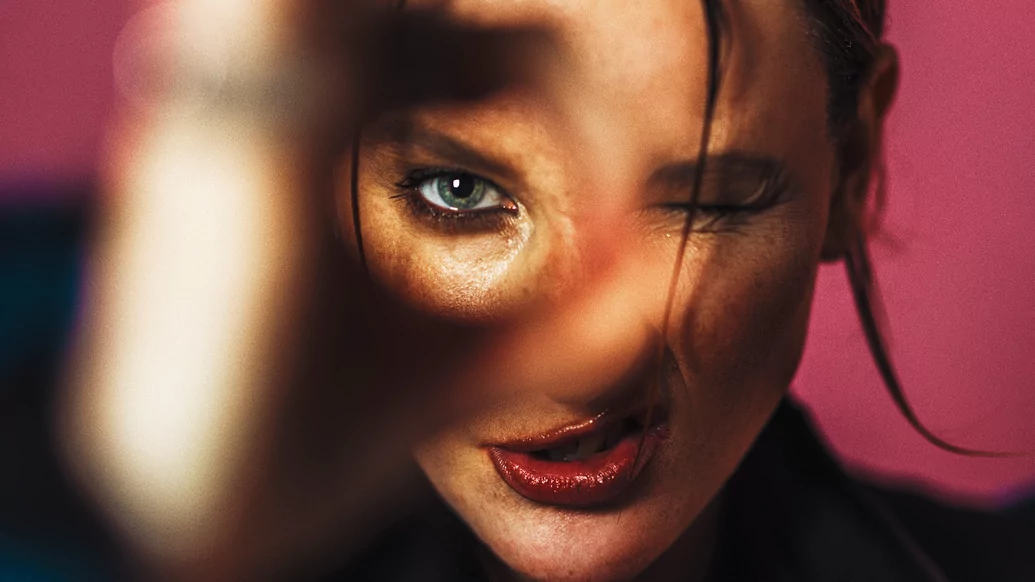
For now, the answer is in Body Movements’ unquestionable accessibility policy. There’s a large proportion of no-and low-income tickets, as well as a commitment to paying artists fairly and booking local. The Winter edition also tweaked the traditions of set times, putting headliners on early and offering smaller collectives peak slots.
Saoirse hopes to keep appealing to younger queer audiences. “So many young people's main sources for discovering music now are Instagram or TikTok. We’re a place where young people can discover themselves,” she says. “It’s a privilege to facilitate a place of freedom.” She stresses bringing in younger collectives with fresh ideas that can “show us things we don't see”.
“I'll never be one of those people that abhors new things because I don't get it,” she says. Adding new strings to her bow in recent years has certainly brought unbridled joy and boundless opportunity, but it comes with personal challenges. “To have this multifaceted life, you don't have any time for friends or relationships,” she says. “I've really struggled with that over the last year. I had been so used to just doing things to help me get to the next step. I still see the world we work in as so precarious. Shit can and does happen. But right now feels the most secure I've felt in where I'm going and what I'm doing.”
The impact of two Covid-scuppered years on an already perilous industry looms large for Saoirse. “I had this overarching fear of like... well, who am I without electronic music? What the fuck am I without this? It's frightening to think about my life without it.” Lockdown was spent close to Shanti, Moxie and Peach, mutually supporting each other. When not anxiously scrolling job sites, Saoirse was tutoring underprivileged women and non-binary people in music.
“I would love to do something like open a school,” she says. “I'd like to see more people in this industry dedicating themselves to education and access, because it makes a fucking huge difference.” Some of the people she tutored are now playing festivals. “That's stuff our world needs to be doing. There's so much money flying around that needs to be distributed better.”
Radio has been the lighthouse of Saoirse’s career. She’s championed unknown producers and prodded demographics to expand their tastes via Ireland’s RTE, a dodgy “backarse of nowhere” Enfield industrial estate (“you left a 20 quid sub under the turntable”), RINSE, and her BBC Radio 1 residency. Her RINSE show was one of the platform’s first house shows to feature a regular selection of well-known guests, from Call Super to Sonja Moonear, Jane Fitz and DJ DEEON. It helped establish her name on a global scale. Radio 1 then, DJ Mag offers, must have felt like a seminal moment. A milestone.
“A real ‘what the fuck is going on’ moment,” Saoirse grins. “Everyone’s ma knows Radio 1!” Her shows were always intricately researched and themed — her residency debut in 2019 was a tribute to pioneering producer and LFO member, Mark Bell. With so many cogs turning, this has been the longest period of time without a regular radio slot since she was 16. “I have no doubt I'll do something again in radio,” she says, “I just want it to be special.”
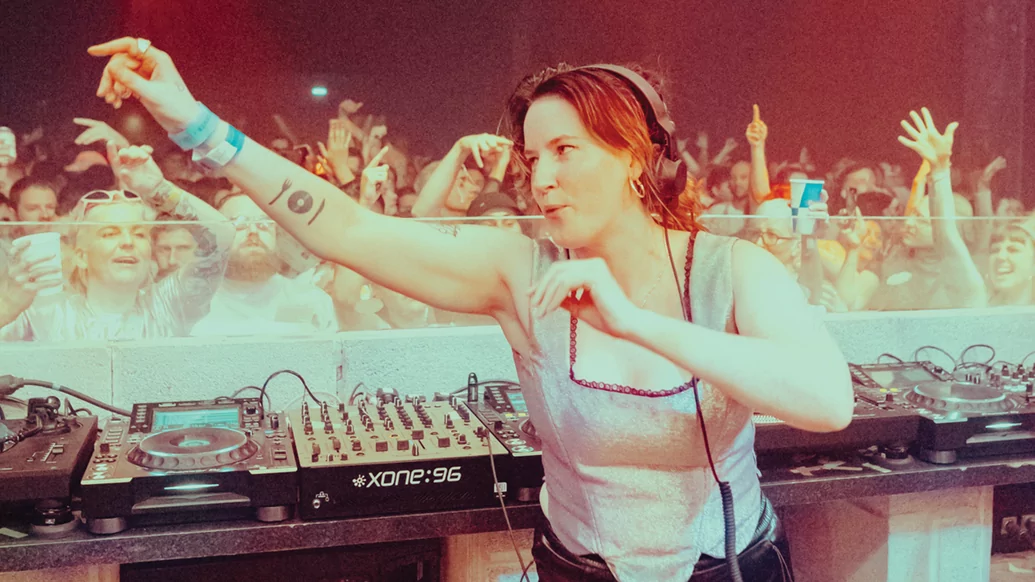
Freer to engage different muscles, Saoirse launched trUst Recordings in 2021 and dropped her debut EP ‘Trust’, a bouncy record that elucidates the elations and anxieties of the dancefloor. Her second EP, ‘Two Bruised Egos’, stretched her skillset with euphoric vocal samples and rich, ocean-deep textures. She emphasises the importance of trust as a concept innate to dance music; trust between DJs, producers, and dancers.
“trUst is always going to be about working with friends and people I can trust to deliver something special,” she says. “Heads-down club music. It's a label you reach for when you want to get the dancefloor moving. I want it to be one of those labels you spot in the shop and you pick it up straight away because you believe in it.” In time, she hopes to expand with compilations, collaborations, and releases of friends’ music under new aliases.
It took the solitude and space of lockdown to confront her own trepidations in producing. “I didn't have the time. I was constantly touring before Covid. I’d go to the studio and just sit there knackered on Facebook. My brain was dead. But I also just didn't think I was good enough,” she admits. “I admire and know such high-quality producers, and I never thought what I was writing could reach that level.”
Saoirse shares a studio with three other artists; alone there during lockdown, she would often go to experience the quiet and get to know her equipment: a Kawai K5000, Yamaha CS1x, Roland JV-2080 rack and Midas Venice mixing desk. She often slept there on the sofa. “It was the happiest I'd been,” she says, “in my own creative bubble. It was the first time in a long time I really saw myself getting better at something. That was getting me pumped. Covid was the worst thing that happened to the world, but production-wise, it was a blessing for me.” She got better at disciplining herself and focusing on the nuts and bolts of projects, shelving “literally hundreds” of unfinished grooves, hunkering down to find her sound.
"I just always wanted to make club music," Saoirse says, pausing. "You know what?" more resolutely, "I just wanted to make tech-house! I still take a lot of inspiration from hard house and trance. I've never been the kind of person that thinks I'm going to reinvent the wheel. I trust myself to make a good club tool. As a DJ, first and foremost, they’re the records I have in my bag. Deliver the goods, get people moving. That's who I am.
“I wanted to give each track a different flavour. Ravey, deep, wacky, weird — that personifies a Saoirse DJ set,” she says. “I think the queer scene has impacted my sound. It’s new wave, sexy, dark. My aesthetic has leaned more into sweaty dark room music.” With the help of producer friends, her partner at the time, and her manager sending positive feedback, it was in motion; next came the question of how to release her work.
“trUst was still a party, but I realised I could make it a label as a vehicle for my music. I didn’t need to fit into anyone else’s label. It gives me so much flexibility — I can decide I want to do a liquid drum & bass record! I have so many flexes I want to show as an artist and producer.”
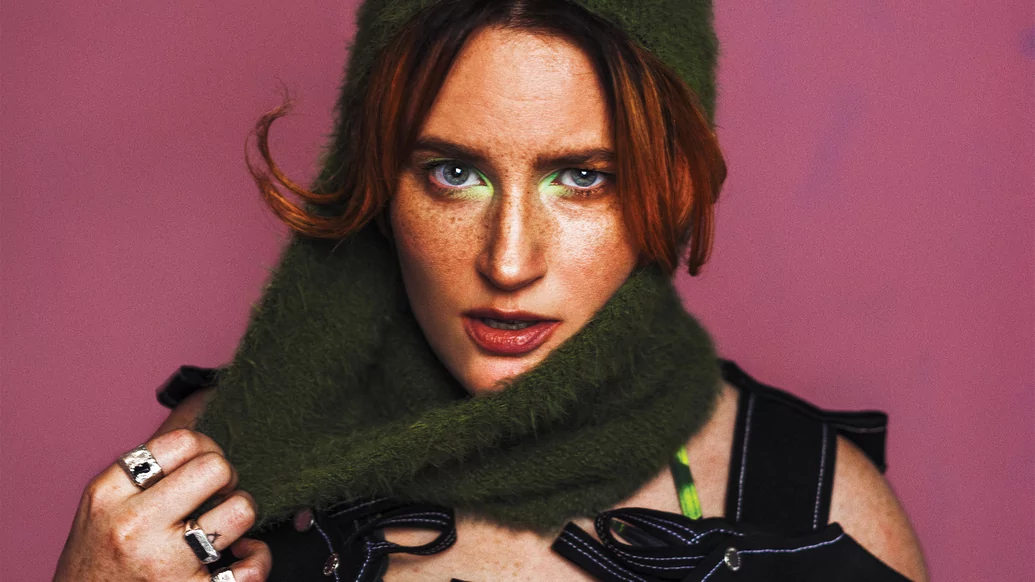
“I think a huge issue that we have as humans is this desire to have something more, and not have the gratitude for what we have right now. I want to be ambitious, but also happy with the present moment.”
Now working on music for the forthcoming year, she has new gear to get stuck into, including a Roland SYSTEM-8 with all the old Roland synths patched in. The music she’s exploring is less club focused, more melancholic and downtempo. She hopes to find a vocalist that she has synergy with. “An album is in my long-term thinking, and what I’m sounding out now won’t be so recognisable to what I’ve put out already. I’d also love to write music for film and soundscapes, and get more confident in remixing.” When we enquire about live sets, she physically recoils, cup of tea jolting in her hand: “I can't think of anything worse!”
With a rapidly broadening horizon post-pandemic, what should have been exhilarating became exhausting. “At the end of the summer, I thought I was losing my fucking mind,” she says. “I had done so many festivals, I had loads of big projects and releases coming out. I remember feeling so close to a breakdown.”
Saoirse credits her manager, Sarah Aitchison, for pulling her back. “I was the one pushing myself,” she says. “If I had gone any further I don't know what would have happened. I feel OK now, but I still haven't had a break really.” After a New Year’s Eve show at Potato Head, Bali, Saoirse starts 2023 with some much-deserved time off. Whether she can switch off that “grind culture” mindset remains to be seen. “I know when I get off, I’ll think about getting in the studio. I'm not very good at just doing nothing. I've been working since I was 15. When I take time to myself, I feel guilty.”
A recent meditation retreat, while difficult, gave her the tools to imagine a slower way of life. “I've decided that twice a year I want to go somewhere beautiful. It gives me the time to think — is this what I want? “Because the truth is, I'm not grounded,” she continues. “My mental health and my physical health struggle. I do what I can: I have a personal trainer, I meditate, I try to eat and sleep well. I'd do the fucking DJing for free, but the travelling is so harsh on the mind, body, your heart. I've been really grateful for those times with the [SASS] girls on the road.”
The old industry standard of relentless tour and release schedules worries her. “Burnout happens in our world — it's nasty,” she says. “Less is more is my goal for the future. I definitely partake in the party, but I’m trying to focus on making my off days good. I have friends and peers that worry me with their schedules. It can't be sustainable.”
There is happiness, for Saoirse, to be found in life that isn’t ingrained in the industry. “I've been doing more inner work to think deeper about happiness that doesn't involve raves,” she says. “It excites me to explore other subcultures: politics, food, fashion, wellness. There’s a number of different elements of life that cross-contaminate more with electronic music and bring in new ideas.
“I think a huge issue that we have as humans is this desire to have something more, and not have the gratitude for what we have right now. I want to be ambitious, but also happy with the present moment.” It’s still a radical pivot of thinking and rare clarity in the industry, especially from a figurehead like Saoirse. “I never think of myself as influential, but maybe it's something I can do more of,” she says thoughtfully. “I've been around a while. I've seen and done a lot. I still feel like I'm in a very early place of what I want to do.”
When we check in on Saoirse’s deserved break abroad, she’s reading Bessel A. van der Kolk’s The Body Keeps the Score: Mind, Brain and Body in the Transformation of Trauma. A line comes to mind: “Imagination gives us the opportunity to envision new possibilities... it fires our creativity, relieves our boredom, alleviates our pain, enhances our pleasure, and enriches our most intimate relationships.” Whatever the rhythm or velocity her imagination takes, Saoirse’s vision for DJs, dancers, and denizens of this world is as boundless as any Balearic sunset, and as triumphant as an end-of-set crowdsurf with your best pals.

